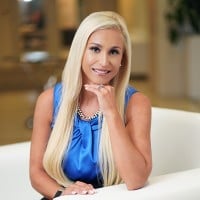In the recent Fourth District Court of Appeal case of Charterhouse Associates, Ltd., Inc. v. Valencia Reserve Homeowners Association, Inc., decided November 28, 2018, the Court determined whether a homeowner is entitled to bring their own personal trainer to the association’s fitness center where the association’s board of directors enacted a new rule prohibiting private trainers, instructors, physical therapist, and massage therapists from working in the fitness center.
 In this case, Charterhouse Associates, Ltd., Inc. owned the lot within the association’s community and authorized Kenneth and Gail Browne to reside at the property and assume the ownership rights of the corporation, which included membership within the association. The Browne’s brought their personal trainer to the clubhouse on several occasions but were later prohibited from doing so because of the aforesaid rule adopted by the board.
In this case, Charterhouse Associates, Ltd., Inc. owned the lot within the association’s community and authorized Kenneth and Gail Browne to reside at the property and assume the ownership rights of the corporation, which included membership within the association. The Browne’s brought their personal trainer to the clubhouse on several occasions but were later prohibited from doing so because of the aforesaid rule adopted by the board.
The association’s Declaration of Covenants, provided in relevant part, that the association property, which includes the fitness center, was reserved for the private use and enjoyment of… “the owners, and their family members, guests, invitees and tenants, but only in accordance with this Declaration.” In addition, the owners, their family members, guests, tenants, agents, and invitees, all had a permanent and perpetual, nonexclusive easement for ingress and egress over, enjoyment in, and use of the association property. Also, the Declaration provided the board the right to establish rules and regulations pertaining to the use of the association property. Because the association entered into a contract with a private provider, it enacted the rule prohibiting private personal trainers, among others.
Initially, the trial court, as a result of the summary judgment hearing, ruled in favor of the association. On appeal, the appellate court reviews trial court decisions stemming from summary judgment hearings in a light “most favorable to the non-moving party.” The appellate court, in addition to focusing on whether the trainer was an “invitee” of the Browne’s who was prohibited by the adopted rule in question, also focused its analysis on whether the board had the authority to enact the rule which prohibited the Browne’s trainer in the first place.
The appellate court looked to an often-cited case, Beachwood Villas Condominium v. Poor, a 1984 Fourth District Court of Appeal case. In this appellate decision, the Court looked to a decision from yet an older 1981 appellate case, Hidden Harbor Estates, Inc. v. Basso, which suggested that condominium rules fall into two classifications: those rules set out in a declaration of condominium and thus approved by the membership, as compared against those rules adopted by the board. The rules contained in the declaration itself are clothed with a strong presumption of validity. However, board adopted rules are reviewed by first determining whether the board acted within its scope of authority and then whether the rule reflects reasoned or arbitrary and capricious decision-making.
As to the board adopted rule prohibiting private trainers, the appellate court held that the board’s adopted rule prohibiting the member’s private trainer directly conflicted with the declaration’s provision granting all owner’s invitees access to the fitness center. Therefore, the appellate court held that the board adopted rule contravened an express provision of the declaration and thus, the board exceeded their scope of authority by enacting the rule in the first place.
Ultimately, what can be gleaned from this case is that before determining whether a board adopted rule is reasonable as compared against being arbitrary and capricious, is to first ensure that the requisite authority exists for the board to adopt a rule in the first place. Since the appellate court determined that the rule should not have been adopted because it was contrary to the terms of the declaration, the appellate court reversed the trial court and remanded the case back to the trial court for further proceedings consistent with their opinion.
Jeffrey Rembaum, Esq. of Kaye, Bender, Rembaum attorneys at law, legal practice consists of representation of condominium, homeowner, commercial and mobile home park associations, as well as exclusive country club communities and the developers who build them. He is a regular columnist for The Condo News, a biweekly publication and was inducted into the 2012, 2013 & 2014 Florida Super Lawyers. He can be reached at 561-241-4462.

